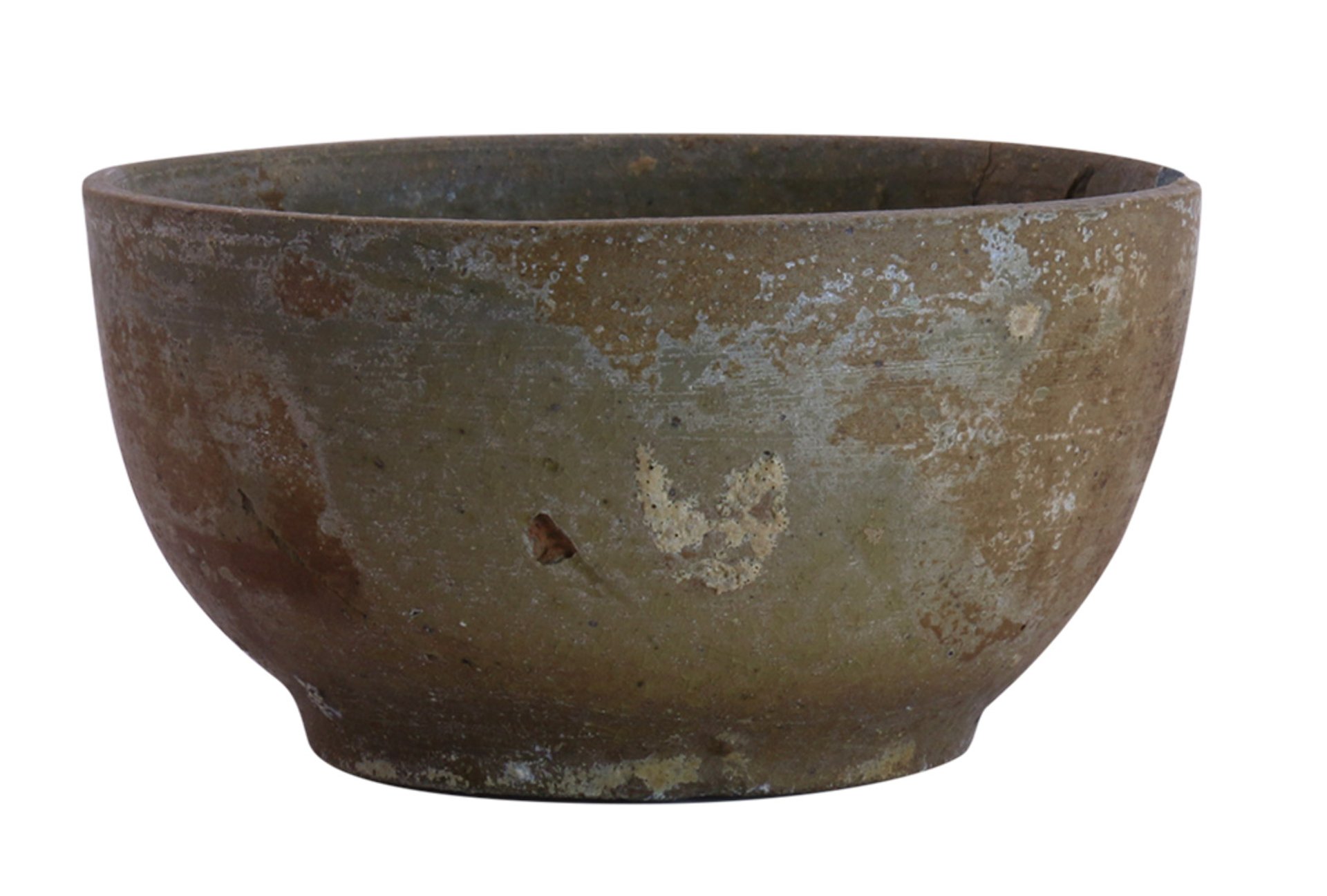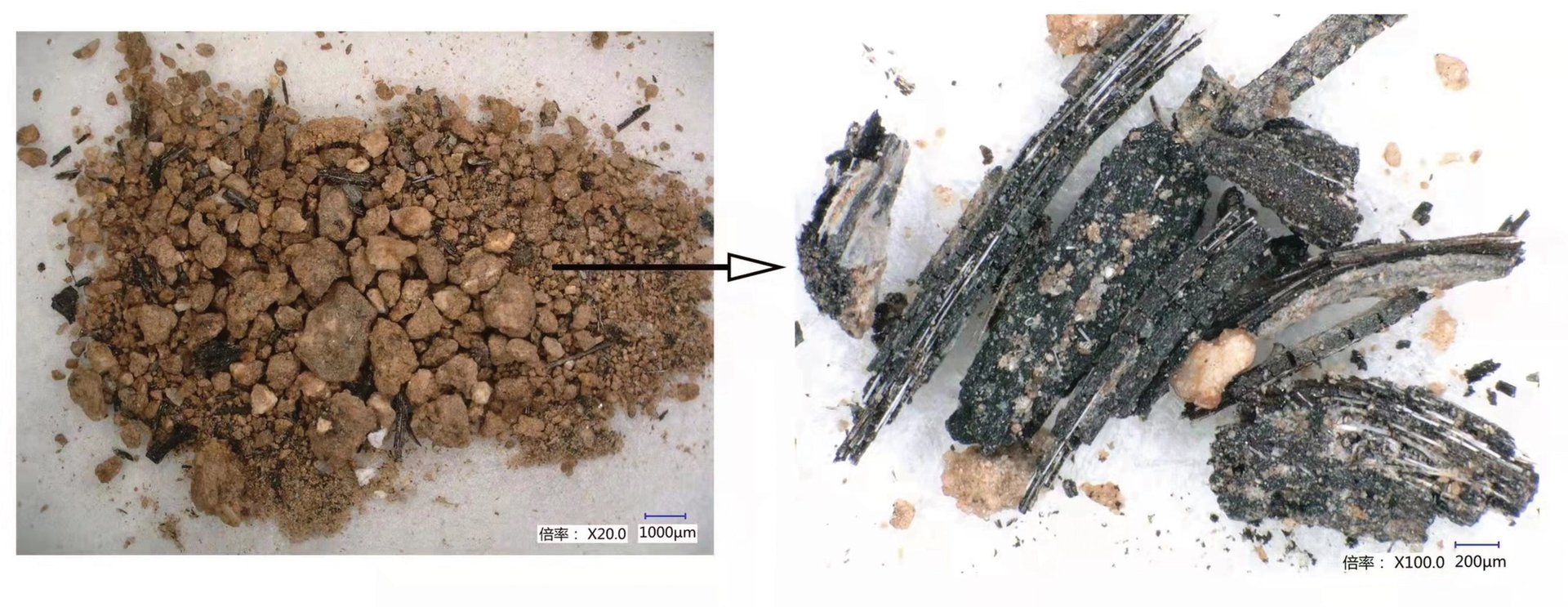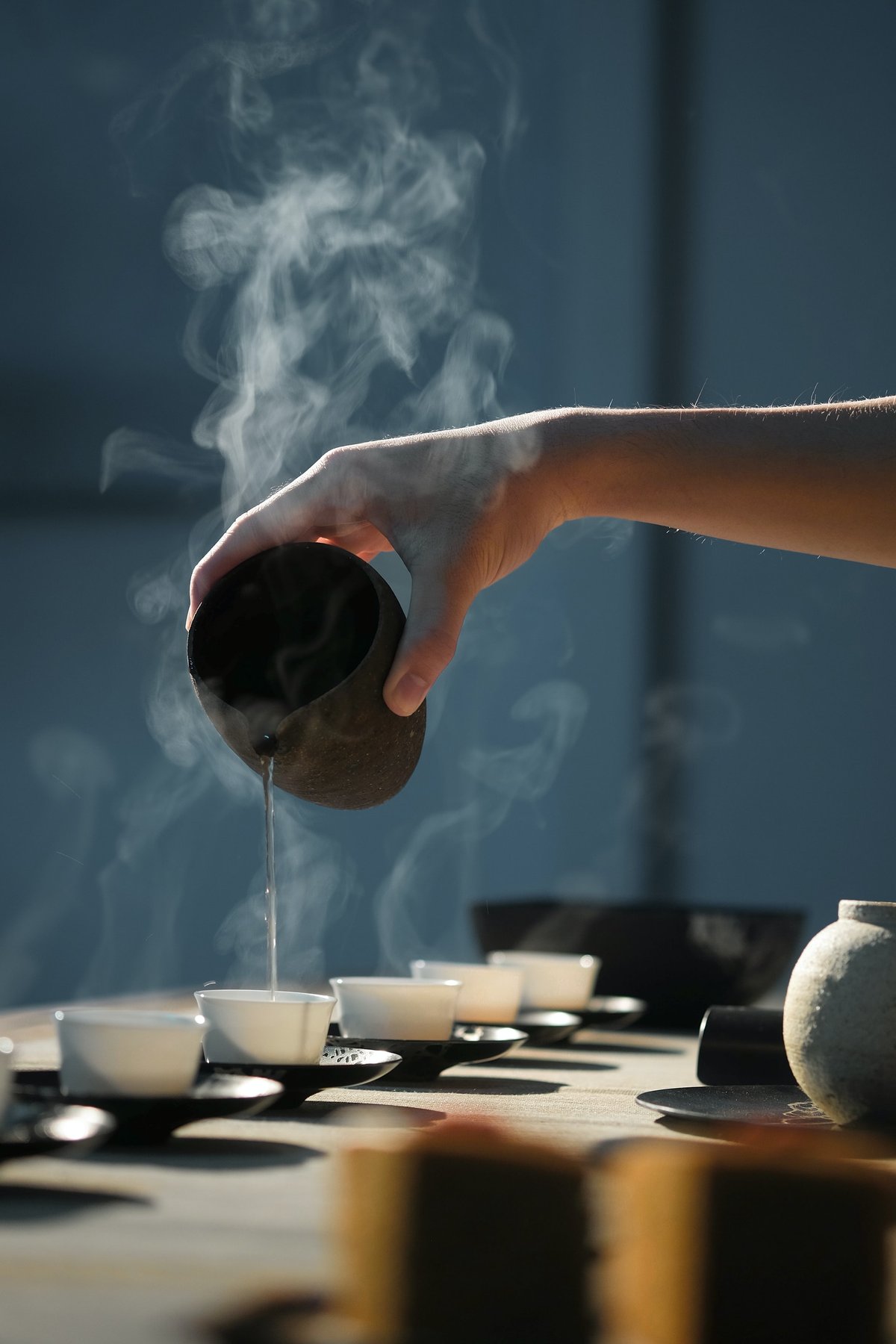The world’s oldest tea remains have been dated to 453BC-410BC in China in a new study by archaeologists from Shandong University and scientists from the University of Science and Technology Beijing. The 2,400-year-old remains of tea leaves were discovered in a royal tomb in Zoucheng, Shandong province. The site was the ancient capital of the Zhu kingdom from 614BC to 218BC.
During excavations of the ruins in 2018, archaeologists hypothesised that decayed plant material found in an overturned porcelain cup was tea. Scientific analysis compared the finds with contemporary tea and soaked tea residue through technologies including Fourier transform infrared spectroscopy and gas chromatography-mass spectrometry. This confirmed that the sample was centuries-old tea leaves.

Analysis has shown that tea residue found in a porcelain cup is around 2,400 years old. Courtesy of Shandong University
The tomb belonged to the queen of Zhu and was next to the king’s tomb, says Professor Wang Qing, the director of the archaeological project and a co-author of the study. The main burial chamber of each tomb covers an area of several hundred square metres. The site has suffered thefts going back to the Han dynasty (202BC-AD220), so “only a few artefacts are left, while many have been stolen,” Wang says. However, recently excavated jade pieces “offered clues to identify their period”.
The ancient tea leaves and porcelain artefacts found in the tomb may not have come from Shandong originally. Wang says that the Zhu kingdom lacked the advanced technology needed to produce such vessels; instead, their shape and structure are identical to porcelain from the southern state of Yue. It is therefore thought that the queen came from Yue and married in the north. The tea and cups were grave goods transported from her hometown.

Micrographs of the ancient tea samples discovered at the capital of Zhu state archaeological site (magnification: left ×20, right ×100). Courtesy of Shandong University
Interestingly, tea residue of that era has never been discovered in southern China. Wang says the Shandong sample was “better protected from decay because the overturned cup blocked the air and the northern soil was less acidic”. Now, archaeologists “presume that similar vessels found in the king of Yue’s tomb were used to keep tea too”.
The findings offer fresh insights into the history of tea and its role in regional cultural exchange, the study states. Previously, the earliest trace of the drink was the 2,100-year-old fossilised tea leaves found in 2005 in the tomb of the Han dynasty emperor Jing, and only confirmed as tea in 2015.


